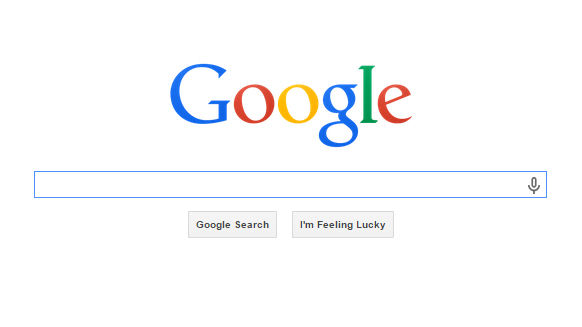What would we do without Google?

April 7, 2015
Don’t know the meaning of something? Back in the day, a dictionary or encyclopedia was the correct method of finding the definition. Today, Google is the brain of society.
Making its appearance in 1998, Google is the No. 1 search engine worldwide. According to Statista.com, the engine has 1.17 billion users, compared to Baidu with 293 million, Yahoo with 292 million and finally Bing with 267 million.
“Search engines work like a skeleton of Google or Yahoo,” said Carl Chapman, graduate in computer science. “It builds an index of pages that launches crawlers, which link to more pages in order to get to the page you want.”
Chapman also said Google is a little robot that crawls around building pages with references perfect for the user.
So how is Google such a big influence in the daily lives of individuals?
“It provides us with anything we want to know,” Chapman said. “In the early ’90s before Google, I used to look up information in encyclopedias.”
Chapman said when he was a teenager, there was much more socialization than there is now. Friends could be together for hours without using technology. Walk around campus any time of the day and see the tops of students’ heads, as they are often scrolling through content on their smartphones.
The engine has become so popular that the name has turned into a verb. People can often be heard saying, “I don’t know, Google it.”
Today, individuals tend to choose the easy path. Before the year 2000, when searching for the lyrics of a song, most people would ask a friend who is a fan of that artist instead of Google.
Elliott Carlson, senior in mechanical engineering, said Google is his best resource for education.
“I’d probably fail my classes [if I didn’t use Google],” Carlson said. “If professors [are] bad, I’ll just teach myself the class material searching through Google.”
Another option for many students if Google were to shut down for a month or, even for good, is the use of other search engines such as Bing and Yahoo. But Google is more than a search engine.
Chapman said the loss of Gmail would cut people a bit deeper than anything else.
Alex McGuire, senior in biological/pre-medical illustration, said she still uses other search engines.
“I use Yahoo more regularly,” McGuire said. “[I] still have a yahoo email.”
Chapman is working on a study with his adviser, Kathryn Stolee, on how people perform when given a set of problems using a computer.
Twenty individuals will be chosen to accept the challenge. The study will be recorded to observe what the participants are actually searching for. The goal of this study, Chapman said, is to show that Google isn’t necessarily going to be the answer to all problems.
“I think Google is a big influence just because it is essentially instant information. It requires next to no effort to answer any question that we have, and usually we have a lot of questions,” said Corey Anderson, junior in computer science.
Anderson said the search engine can be used for academic, entertainment or totally random questions.
“I can look up what actors star in the movie I’m watching from my phone without missing any part of the movie,” Anderson said. “I can find similar solutions to my homework problems to help study faster than I can read my own written lecture notes. It’s all a huge convenience and now everyone is used to it.”
Valentina Pita, sophomore in nutritional science, said Google is her first option for searching information regarding a research topic.
“My textbook would be the other option,” Pita said.
Pita said she thinks this popular search engine will affect future generations.
Pita said no one would think critically about anything. Many won’t apply any learned material because most information they need is just a keyboard away.
Google is famous not only for giving us Google Scholar, Google Maps and Gmail, among others — it gives a wide view of entertainment.
The most searched topics on Google in 2014 were: Robin Williams, World Cup, Ebola, Malaysia Airlines, Flappy Bird, ALS Ice bucket challenge, ISIS, Ferguson, Frozen and Ukraine. These topics were mostly entertainment-based.
Francisco Bermudez, sophomore in kinesiology, said education is first but Google is great for searching interesting facts.
“If I have a doubt, I just Google it,” Bermudez said. “Other people may have the same thoughts as me, which gives me more knowledge on the subject.”
Google is a quick source for researching and also finding credible sources for different school work. Without Google, many individuals would be stressed out, thinking and analyzing instead of just typing a word and finding the definition.
“You can’t walk without it anymore,” Chapman said. “You have to learn how to solve the problem alone.”
When that research paper deadline is looming or you have no idea which equation to use in your homework, Chapman advised students to try to think critically before Googling it.
















